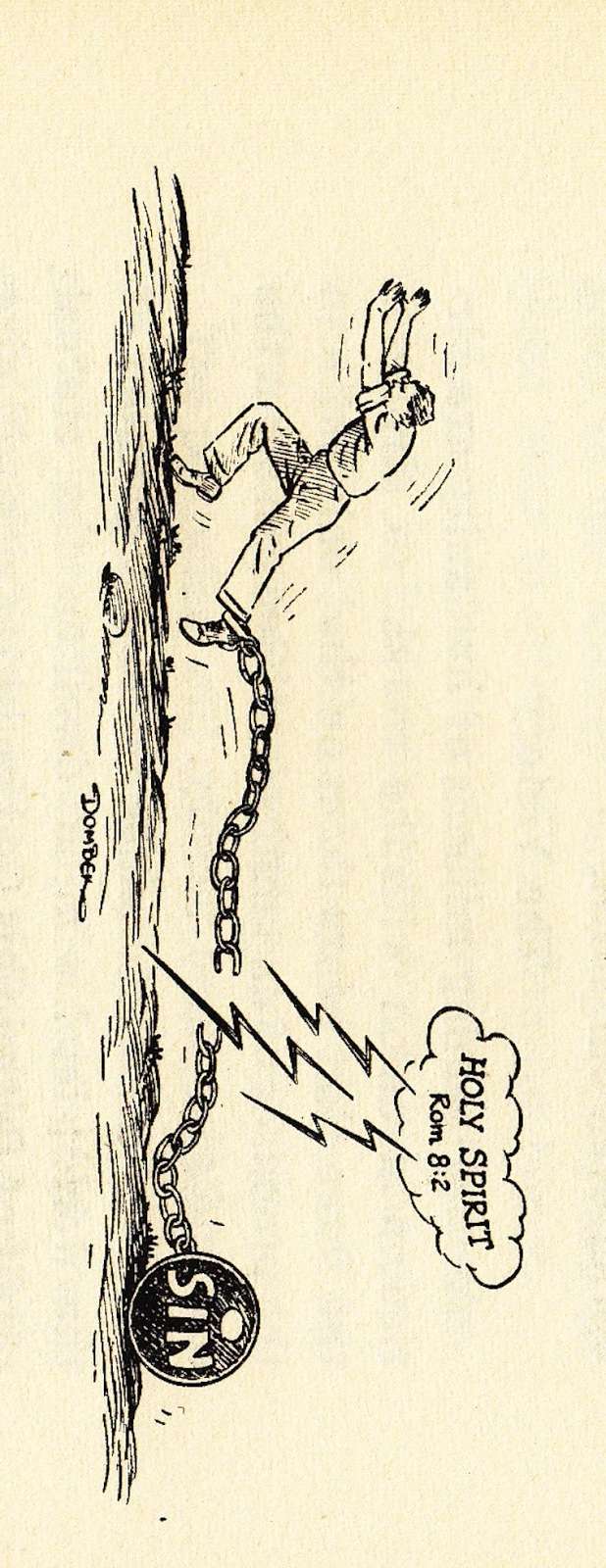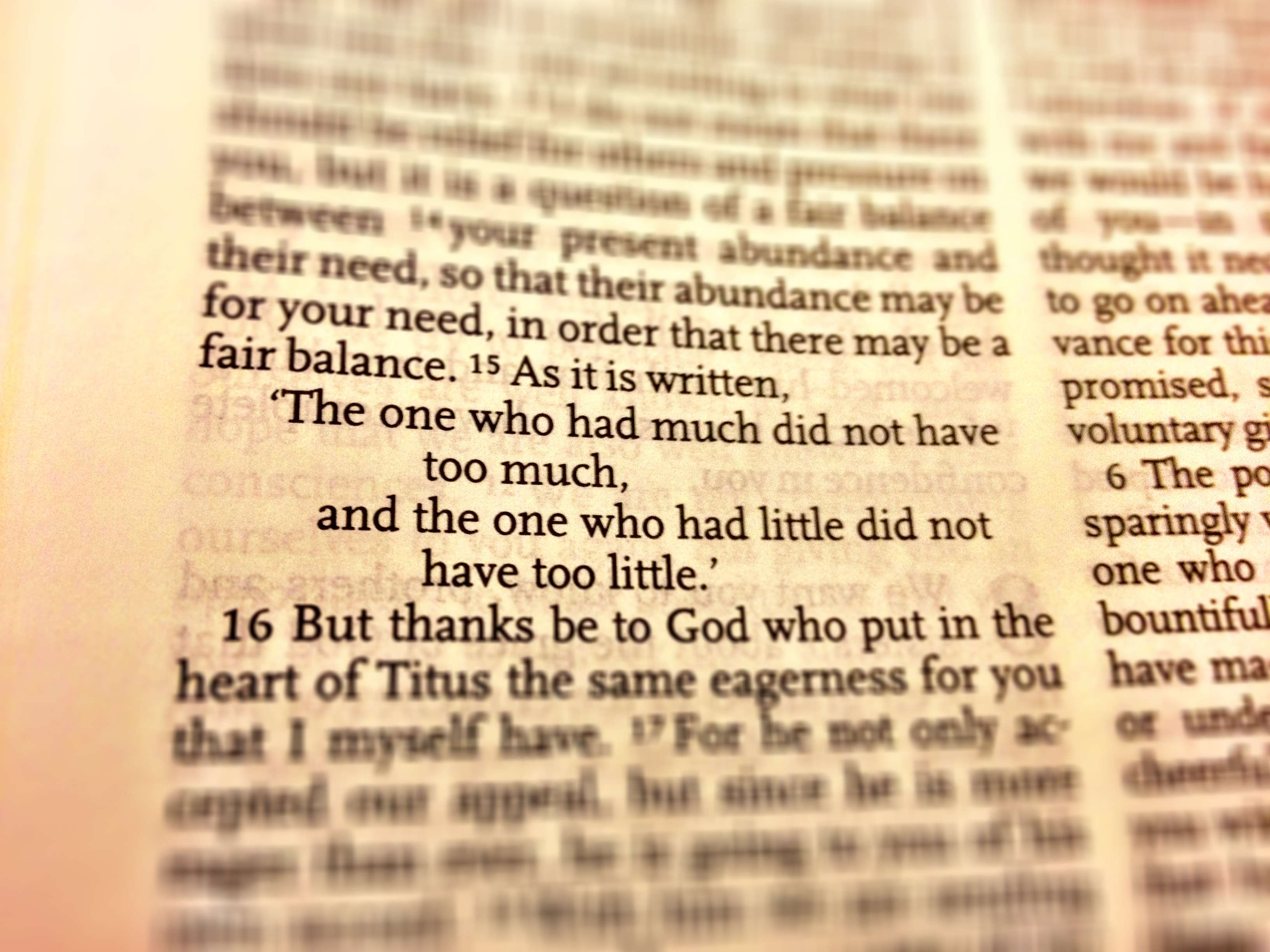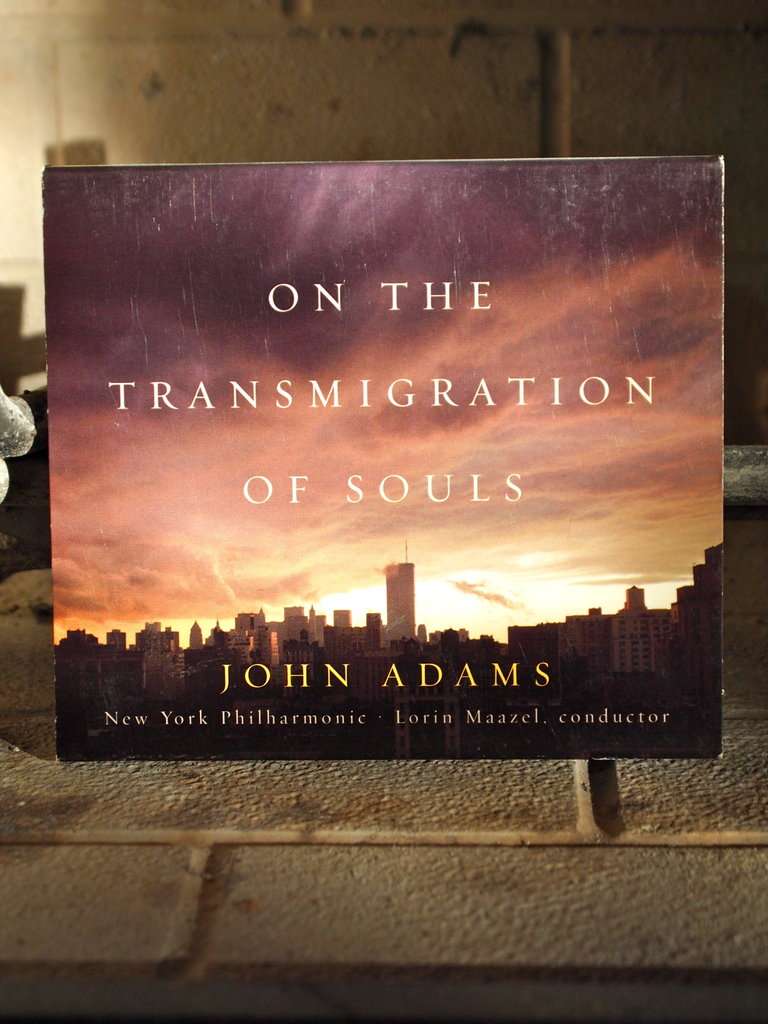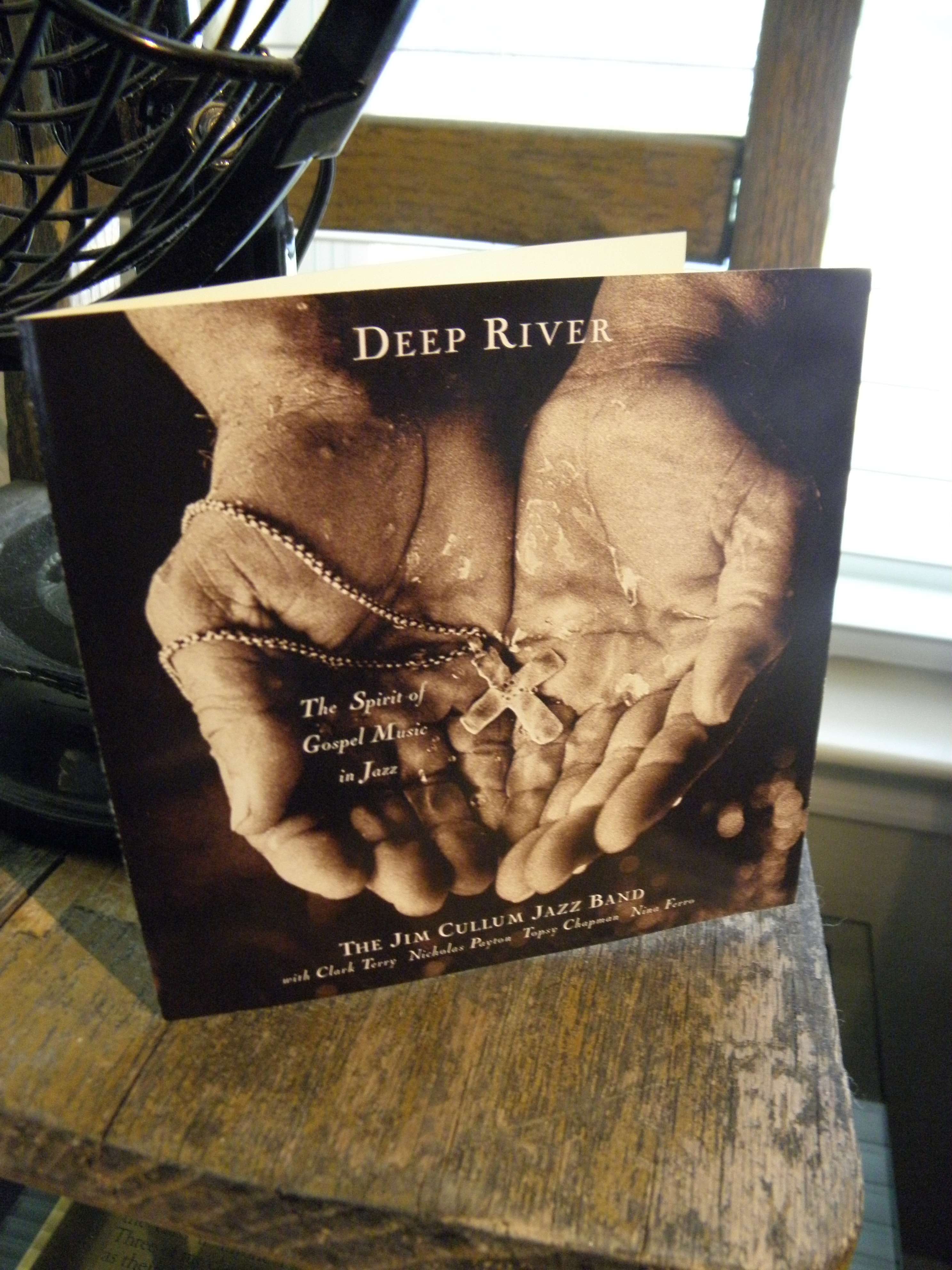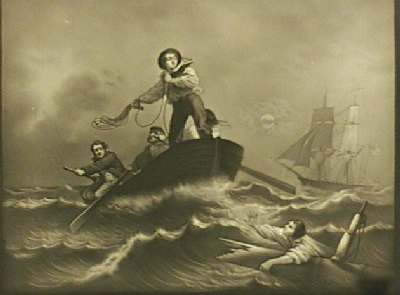...and the Damned Fool. A curmudgeonly review of life, the universe, and everything... including, as appropriate, The Good News. A proud member of the True Reason Community.
Dec 31, 2012
Dec 30, 2012
Dec 29, 2012
Dec 28, 2012
Dec 27, 2012
Dec 26, 2012
Dec 25, 2012
Dec 23, 2012
Dec 18, 2012
Dec 5, 2012
Nov 28, 2012
Bottomless cup
Twenty eight years ago today, November 28th, 1984, I drank from a cup that quenched my thirst, a cup that is never empty and always flowing. It caused my hair to stand on end.
It remains a big deal.
You must picture me alone in that room in Magdalen, night after night, feeling, whenever my mind lifted even for a second from my work, the steady, unrelenting approach of Him whom I so earnestly desired not to meet. That which I greatly feared had at last come upon me. In the Trinity Term of 1929 I gave in and admitted that God was God, and knelt and prayed: perhaps, that night, the most dejected and reluctant convert in all England. I did not then see what is now the most shining and obvious thing; the Divine humility which will accept a convert even on such terms. The Prodigal Son at least walked home on his own feet. But who can duly adore that Love which will open the high gates to a prodigal who is brought in kicking, struggling, resentful, and darting his eyes in every direction for a chance of escape? The words compelle intrare, compel them to come in, have been so abused by wicked men that we shudder at them; but, properly understood, they plumb the depth of the Divine mercy. The hardness of God is kinder than the softness of men, and His compulsion is our liberation.
C.S. Lewis
Nov 27, 2012
Nov 25, 2012
Nov 8, 2012
"You don't own my body."
Slaves as Property
Plantation owners in the Americas were dependent upon slaves to ensure high profitability. In Britain, 18th-century laws were designed to support a trade in slaves that was sanctioned by the king and parliament. A decision by the Solicitor General stated that 'Negroes' ought to be 'esteemed goods and commodities within the Trade and Navigation Acts'. Such a ruling permitted slave owners to use property law with regard to their slaves 'to recover goods wrongfully detained, lost or damaged' as they would any other property.
The use of property law meant that the enslaved were considered not humans, but commodities. This view of Africans would have a detrimental and lasting effect on the Black community well into the 20th century. The historian James Walvin concludes that 'the State, as an institution, dehumanized African men, women and children for its own ends'.
During the recent foolishness that passed as a national campaign for the Politics of the United States, the claim of a "War on Women" came to the front. Among those claims was that the Republicans wanted to interfere with a woman's "right" to destroy a life in her womb, a right essentially because it was "her body" and what was in it was "her property."
I was struck by how similar the language used by an anti-GOP woman was, who posted a video on YouTube called "You Don't Own My Body," to the language used by English slave traders regarding their property, and their right to destroy it if it was inconvenient to them.
Liberalism has come a long way since the likes of giants like William Wilberforce.
Oct 22, 2012
See the sights (updated)
As seen and noted on my morning walks.
- River Cooter Turtle
- Guadalupe Spiny Soft-Shelled Turtle
- Yellow Belly Water Snake
- Eastern Yellow Racer Snake
- Cotton-tailed Rabbit
- Jack Rabbit
- Great Blue Heron
- Crane
- Sandpiper
- Cooper's Hawk
- Crested Duck
- Mud Hen
- Egret
- Alligator Gar
- Bream
- Rat
- Eastern Grey Squirrel
- Woodrat
- Coyote (spoor)
- Horned Owl
- Chaparral
- Beaver (sign)
- Deer (tracks)
- Raccoon (tracks)
- Purple Martin
- Tilapia
- Barn Swallow
- Kingfisher
- Scissor-tailed Flycatcher
- Pill Bug
- Oriole
- Cow Bird
- Crow
- Cardinal
- Raven
- Red Harvester Ant
- Prickly Pear
- Spanish Moss
- Bois D'Arc
- Cat Tail
- Thistle
- Black-eyed Susan
- Texas Blue Bell
- Mockingbird
- English Sparrow
- Mourning Dove
- White-wing Dove
- Red Peppered Moth
- Dragon Fly
- Gnat
- Mosquito
- Caracara (Mexican Eagle)
This list is updated as things stand out.
Sep 13, 2012
Sep 11, 2012
Sep 2, 2012
Lutheran Distinctives: Exhibit A
Realizing the hopelessness of their situation, and their inability to save themselves, these Germans decided to surrender to a force greater than themselves. Others, however, in their pride and fear, fought on to the death. That too was a decision.
Decisionism.
Aug 28, 2012
Aug 26, 2012
Aug 24, 2012
Truth be told.
"Skill without imagination is craftsmanship and gives us many useful objects such as wickerwork picnic baskets. Imagination without skill gives us modern art."
-- Tom Stoppard
Aug 6, 2012
Is it a boat or a coffin?

Or is it both?
We had a couple of water baptisms yesterday at the Christian gathering I attend. Two young men in their early twenties. We use a galvanized steel horse trough that might have come from Callahan's General Store.
The word 'baptized' is closely related to 'capsized'. In old Greek, they're interchangeable words. To be baptized meant to be overturned and submerged. It's a dramatic event, fraught with danger, whether in a boat or in a church. It's worlds removed from the birdbath many churches use for sprinkling baptisms, both physically and symbolically.
To the Jews of the first century A.D., baptism was a ritual cleansing. To the early Christians took this cleansing a step farther... a huge step farther. To them, baptism was more about dying and being reborn new. One was laid into a watery grave, and raised (born again) as a new creation, as a new man or woman (Romans 6:1-14).
As I looked down at the horse-trough baptismal font, I saw a coffin with water in it. As I continued to look down, I saw a boat that had been submerged. When I looked up, I saw two young men who had died with Christ, and who had then been raised with him. They had taken a trip on a small boat on very rough seas, had drown as their boat became their coffin, they burst forth from the watery breach to a new life.
Symbolically? Yes. But powerfully real, nonetheless.
Jul 29, 2012
Jul 28, 2012
Jul 26, 2012
Jul 23, 2012
Miracles are...
“The miracles of Jesus were the ordinary works of his Father, wrought small and swift that we might take them in.”
-- George MacDonald
Thinking Christian
Jul 15, 2012
You should own this. Yes, you.
Jul 12, 2012
Flames of fire
"Go ahead, light your candles and burn your incense and ring your bells and call out to God. But watch out, because God will come. And He will put you on his anvil and fire up His forge and beat you and beat you and beat you until He turns brass into pure gold." -- S. Keshavadas
Jul 5, 2012
PM changed his Religious Views.
"PM changed his Religious Views." That's what it says on my Facebook Timeline. It's not quite true, although I did change one view from being spelled with an initial capital to lowercase for clarity, and then back again for consistency. But perhaps some explanation is called for.
Facebook Religious Views: Evangelical Pentecostal Catholic Quaker
EVANGELICAL
I am an Evangelical Christian. Today, that's often thought to be a political term. It isn't. The term “evangelical” comes from the Greek word euangelion, meaning “the good news” or the “gospel.” Thus, the evangelical faith focuses on the “good news” of salvation brought to sinners by Jesus Christ.
PENTECOSTAL
I am also something of a Pentecostal Christian. According to Wikipedia,
CATHOLIC
QUAKER
The central tenet of the diverse Quaker belief is The Priesthood of All Believers.
EVANGELICAL
I am an Evangelical Christian. Today, that's often thought to be a political term. It isn't. The term “evangelical” comes from the Greek word euangelion, meaning “the good news” or the “gospel.” Thus, the evangelical faith focuses on the “good news” of salvation brought to sinners by Jesus Christ.
PENTECOSTAL
I am also something of a Pentecostal Christian. According to Wikipedia,
Pentecostalism or Classical Pentecostalism is a renewal movement within Christianity that places special emphasis on a direct personal experience of God through the baptism in the Holy Spirit. The term Pentecostal is derived from Pentecost, the Greek name for the Jewish Feast of Weeks. For Christians, this event commemorates the descent of the Holy Spirit upon the followers of Jesus Christ, as described in the second chapter of the Book of Acts. Pentecostals tend to see their movement as reflecting the same kind of spiritual power and teachings that were found in the Apostolic Age of the early church. For this reason, some Pentecostals also use the term Apostolic or full gospel to describe their movement.
I can agree with that. I have been "born again from above," and I know that direct contact with God through his spirit is a reality denied to no one who desires it.
CATHOLIC
I am a catholic Christian, but not a Roman Catholic (big difference). There are essentially five definitions of what being a Catholic Christian means. My self identification isn't based on any of these (although at one time, as an Anglican, it was). It's based on the meaning of the word "catholic" as representing the whole church, undivided. And what would that be, in the fractious and fractured reality of human Christendom? It would be the recognition of, and adherence to, the creedal staements of the early Church: the Apostle's Creed and the Nicene Creed. In those statements of faith you will find the catholic church.
QUAKER
The central tenet of the diverse Quaker belief is The Priesthood of All Believers.
Yeah. That's central to me, too. Defining, actually.
During my Anglo-Catholic days, I was very much opposed to the ordination of women to the priesthood, based both upon my "Catholic" views, and upon my experience with the heterodox beliefs of the ordained women I had worked with. It became something of a non-issue with me as time went by (and I removed myself from Anglo-Catholicism).
During my Anglo-Catholic days, I was very much opposed to the ordination of women to the priesthood, based both upon my "Catholic" views, and upon my experience with the heterodox beliefs of the ordained women I had worked with. It became something of a non-issue with me as time went by (and I removed myself from Anglo-Catholicism).
An ordained orthodox Anglican Christian friend of mine noticed this lessening of opposition, and asked, "P.M., are you no longer opposed to Women's Ordination?" My response was (and is) that my opposition to "The Ordination of Women to the Holy Priesthood" remains in place, but that I've expanded that opposition to include men as well.
The priesthood of all believers, living the expectant presence of God. Not only quaking, but even quivering.
Jun 29, 2012
Jun 23, 2012
Nina Hagen continues to shock and awe.
Nina Hagen, the 57 year-old Radical Left-Wing German vegetarian New Wave Punk Rock star, has been baptized a Christian. Born in East Berlin, the child of two Marxist atheists, she joined a Reformed Evangelical Church in northern Germany in 2009. As Alice Cooper said about himself after becoming a 'Born-Again' Christian, "It's the most radical thing I've ever done."
"Both of my parents were atheists, and I found the way to God all alone on my own. You have to invite him, so that he shows up... I'm a family member of Christ and I have a Lord. He marched ahead of me and showed me the way." - Nina Hagen
Three Easy Pieces: D.I.Y. Salvation
You are walking in the woods. Your feet get tangled in the exposed roots of a hoary old tree. You reach down to pull your boots free, but you trip over the roots and fall into a deep ravine, breaking both your ankles (because your feet got tangled in the hoary roots). You lay there, unconscious, unable even to call for help. You will die of exposure.
A burly, strong, handsome woodsman comes by and sees you. He picks you up and carries you to an aid station. You are saved.
Did you save yourself? Of course not. You had no part in your salvation. You only lay broken, at the bottom of the ravine as a result of the fall.
Example Two:
You go out sailing in a small boat on a large body of water. By yourself. You don't wear the life-vest your parents gave you (you're not even sure where it is). But you've taught yourself how to sail a boat and how to swim. You are confident in your abilities, up to a point (you don't intend to go too far out in the small, Sunfish-class sailboat).
But a squall blows in suddenly, pushing you out into the water. You struggle to get your boat back to the protection of the shoreline, but the rising waves, driving rain, and growing darkness make the struggle difficult. You fall overboard. You panic in the cold water, as you see your boat driven away from you. In your panic, you cry out for help, even though you don't think anyone can hear you.
But to your great surprise, a voice calls out. "I can save you!" You look around, and you see a large boat has appeared in the storm. A burly, strong, handsome sailor stands at the rails with a lifeline in his hands. He throws it out into water. "Grab the line, and I'll pull you onboard!"
Response A: In your panicked state, you think the lifeline is a water moccasin. "Get away from me!" you scream, and kick the lifeline away. Thrashing about, fearing there is a serpent in the water near you, you sink beneath the waves.
Response B: You are embarrassed. The expert sailor has seen you foolishly overturn your boat ("The waves weren't really that high, and the wind not really that strong," you tell yourself). You imagine that he and his friends on the boat will laugh at you, behind your back, for needing to be saved. But you are strong, and a good swimmer. "No thanks!" you yell back. "I can swim to the shore. You go find someone who really needs help!" You begin to swim towards where you think the shoreline is, but you swim in the wrong direction. It's dark now, and the large boat is scanning the waves with a searchlight, looking for you. You keep treading water until you are too tired to keep it up any longer. With nothing to hold on to, you slip beneath the waves.
Response C: You reach out weakly and grab the line, which lies at your fingertips. While you hold onto the line, the sailor pulls you to himself, and to safety.
In Response A, did your fear become your undoing? Yes.
In Response B, did your foolish pride become your undoing? Yes. Were you able to save yourself? No.
In Response C, did you save yourself? Of course not. You accepted the saving action of the seaman.
Example Three: (Toastmasters says to always leave them with a joke.)
The rains have been falling up river. The river is rising and will soon crest the banks. The sheriff drives up to your house and warns you to pack your belongings and leave before the flood waters arrive. "I have Faith that the Lord will save me from the flood. I will wait for Him," you respond. The sheriff drives off to warn the next family.
The waters break the levee and flood the county. The water covers the foundation of your house and laps at your front porch. The Red Cross sends a small boat to your door, asking you to leave your house. "I have Faith that the Lord will save me from the flood. I will wait for Him," you tell the Red Cross workers. They leave, looking for others stranded by the rising waters.
The waters rise into your home. You go to the roof. A National Guard helicopter comes by and spots you on the roof. The Guardsmen lower a line to you and tell you to grab hold and they'll pull you to safety. "I have Faith that the Lord will save me from the flood. I will wait for Him," you yell up to the helicopter. They try to argue with you, but you win. They move on in search of others.
The waters continue to rise. You cling to the chimney until the strength of the rushing waters overcome your own strength. You are swept away, under the waters.
You wake up in Heaven. You approach the Gates and see Peter. He welcomes you, and begins the processing work. Finally he asks you if you have any questions. You do. "I had Faith that the Lord would save me from the flood. I waited for Him, but He never came."
As he opens the Gates of Heaven, Peter looks at you and says, "The Lord sent the sheriff, the Red Cross, and the National Guard to save you, but you wouldn't come."
#
Abandon your pride (it is of no value), overcome your fear (it will not protect you), and grab the lifeline (then you will be saved). Come. Respond. Repent. Follow.
Jun 22, 2012
Worth revisiting.

Answered by a Lover of Free Grace
by John Wesley
1. To say, "This man is an Arminian," has the same effect on many hearers, as to say, "This is a mad dog." It puts them into a fright at once: They run away from him with all speed and diligence; and will hardly stop, unless it be to throw a stone at the dreadful and mischievous animal.
2. The more unintelligible the word is, the better it answers the purpose. Those on whom it is fixed know not what to do: Not understanding what it means, they cannot tell what defence to make, or how to clear themselves from the charge. And it is not easy to remove the prejudice which others have imbibed, who know no more of it, than that it is "something very bad," if not "all that is bad!"
3. To clear the meaning, therefore, of this ambiguous term, may be of use to many: To those who so freely pin this name upon others, that they may not say what they do not understand; to those that hear them, that they may be no longer abused by men saying they know not what; and to those upon whom the name is fixed, that they may know how to answer for themselves.
4. It may be necessary to observe, First, that many confound Arminians with Arians. But this is entirely a different thing; the one has no resemblance to the other. An Arian is one who denies the Godhead of Christ; we scarce need say, the supreme, eternal Godhead; because there can be no God but the supreme, eternal God, unless we will make two Gods, a great God and a little one. Now, none have ever more firmly believed, or more strongly asserted, the Godhead of Christ, than many of the (so called) Arminians have done; yea, and do at this day. Arminianism therefore (whatever it be) is totally different from Arianism.
5. The rise of the word was this: JAMES HARMENS, in Latin, Jacobes Arminius, was first one of the Ministers of Amsterdam , and afterwards Professor of Divinity at Leyden . He was educated at Geneva
6. The errors charged upon these (usually termed Arminians) by their opponents, are five: (1.) That they deny original sin; (2.) That they deny justification by faith; (3.) That they deny absolute predestination; (4.) That they deny the grace of God to be irresistible; and, (5.) That they affirm, a believer may fall from grace.
With regard to the two first of these charges, they plead, Not Guilty. They are entirely false. No man that ever lived, not John Calvin himself, ever asserted either original sin, or justification by faith, in more strong, more clear and express terms, than Arminius has done. These two points, therefore, are to be set out of the question: In these both parties agree. In this respect, there is not a hair's breadth difference between Mr. Wesley and Mr. Whitefield.
7. But there is an undeniable difference between the Calvinists and Arminians, with regard to the three other questions. Here they divide; the former believe absolute, the latter only conditional, predestination. The Calvinists hold, (1.) God has absolutely decreed, from all eternity, to save such and such persons, and no others; and that Christ died for these, and none else. The Arminians hold, God has decreed, from all eternity, touching all that have the written word, "He that believeth shall be saved: He that believeth not, shall be condemned:" And in order to this, "Christ died for all, all that were dead in trespasses and sins;" that is, for every child of Adam, since "in Adam all died."
8. The Calvinists hold, Secondly, that the saving grace of God is absolutely irresistible; that no man is any more able to resist it, than to resist the stroke of lightning. The Arminians hold, that although there may be some moments wherein the grace of God acts irresistibly, yet, in general, any man may resist, and that to his eternal ruin, the grace whereby it was the will of God he should have been eternally saved.
9. The Calvinists hold, Thirdly, that a true believer in Christ cannot possibly fall from grace. The Arminians hold, that a true believer may "make shipwreck of faith and a good conscience;" that he may fall, not only foully, but finally, so as to perish for ever.
10. Indeed, the two latter points, irresistible grace and infallible perseverance, are the natural consequence of the former, of the unconditional decree. For if God has eternally and absolutely decreed to save such and such persons, it follows, both that they cannot resist his saving grace, (else they might miss of salvation,) and that they cannot finally fall from that grace which they cannot resist. So that, in effect, the three questions come into one, "Is predestination absolute or conditional?" The Arminians believe, it is conditional; the Calvinists, that it is absolute.
11. Away, then, with all ambiguity! Away with all expressions which only puzzle the cause! Let honest men speak out, and not play with hard words which they do not understand. And how can any man know what Arminius held, who has never read one page of his writings? Let no man bawl against Arminians, till he knows what the term means; and then he will know that Arminians and Calvinists are just upon a level. And Arminians have as much right to be angry at Calvinists, as Calvinists have to be angry at Arminians. John Calvin was a pious, learned, sensible man; and so was James Harmens. Many Calvinists are pious, learned, sensible men; and so are many Arminians. Only the former hold absolute predestination; the latter, conditional.
12. One word more: Is it not the duty of every Arminian Preacher, First, never, in public or in private, to use the word Calvinist as a term of reproach; seeing it is neither better nor worse than calling names? -- a practice no more consistent with good sense or good manners, than it is with Christianity. Secondly. To do all that in him lies to prevent his hearers from doing it, by showing them the sin and folly of it? And is it not equally the duty of every Calvinist Preacher, First, never in public or in private, in preaching or in conversation, to use the word Arminian as a term of reproach? Secondly. To do all that in him lies to prevent his hearers from doing it, by showing them the sin and folly thereof; and that the more earnestly and diligently, if they have been accustomed so to do? perhaps encouraged therein by his own example!
From the Thomas Jackson edition of The Works of John Wesley, 1872.
Jun 21, 2012
The World Turned Upside Down.
If ponies rode men and grass ate cows,
And cats were chased into holes by the mouse . . .
If summer were spring and the other way round,
Then all the world would be upside down.
Jun 17, 2012
His day.
"We must not measure by natural human fatherhood what it means that God is our Father. It is from God's fatherhood that our natural human fatherhood acquires any meaning and dignity it has. God is the Father 'from whom his whole family in heaven and on earth derives its name.'"
-- Karl Barth (1886-1968)
For Harry C. Summer (1918-1996). Thanks, Dad.
Jun 9, 2012
Sighted List
As seen and noted on my morning walks.
- River Cooter Turtle
- Guadalupe Spiny Soft-Shelled Turtle
- Yellow Belly Water Snake
- Eastern Yellow Racer Snake
- Cotton-tailed Rabbit
- Jack Rabbit
- Great Blue Heron
- Crane
- Sandpiper
- Crested Duck
- Mud Hen
- Egret
- Alligator Gar
- Bream
- Coyote (spoor)
- Horned Ow
- Beaver (sign)
- Deer (tracks)
- Raccoon (tracks)
- Purple Martin
- Tilapia
- Barn Swallow
- Scissor-tailed Flycatcher
- Pill Bug
- Oriole
- Sand Piper
- Cow Bird
- Crow
- Cardinal
- Raven
- Red Harvester Ant
- Prickly Pear
- Spanish Moss
- Bois D'Arc
- Cat Tail
- Thistle
- Black-eyed Susan
- Texas Blue Bell
- Mockingbird
- English Sparrow
- Mourning Dove
- White-wing Dove
- Red Peppered Moth
- Dragon Fly
- Gnat
- Mosquito
This list is updated as things stand out.
Subscribe to:
Comments (Atom)



















